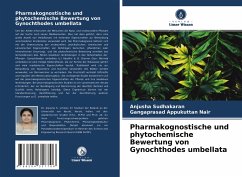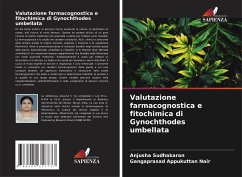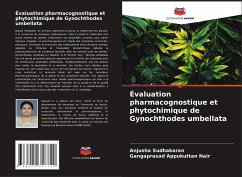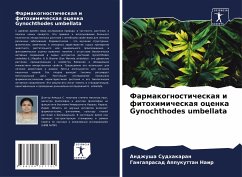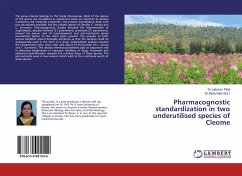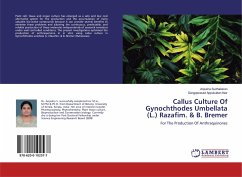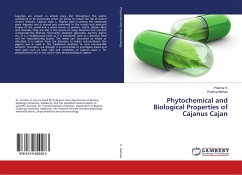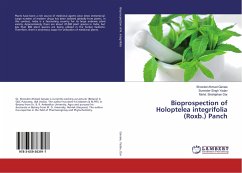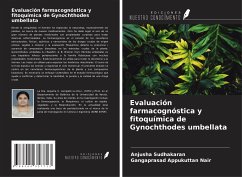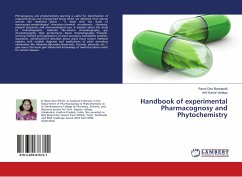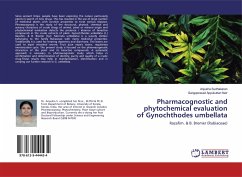
Pharmacognostic and phytochemical evaluation of Gynochthodes umbellata
Razafim. & B. Bremer (Rubiaceae)
Versandkostenfrei!
Versandfertig in 6-10 Tagen
27,99 €
inkl. MwSt.

PAYBACK Punkte
14 °P sammeln!
Since ancient times, people have been exploring the nature particularly plants in search of new drugs. This has resulted in the use of large number of medicinal plants with curative properties to treat various diseases. Pharmacognosy is the study of the structural, physical, chemical and sensory characters of crude drugs of animal, plant or mineral origin and phytochemical evaluation detects the presence / absence of bioactive compounds in the crude extracts of plant. Gynochthodes umbellata (L.) Razafim. & B. Bremer (Syn: Morinda umbellata) is a woody climber belonging to the family Rubiaceae ...
Since ancient times, people have been exploring the nature particularly plants in search of new drugs. This has resulted in the use of large number of medicinal plants with curative properties to treat various diseases. Pharmacognosy is the study of the structural, physical, chemical and sensory characters of crude drugs of animal, plant or mineral origin and phytochemical evaluation detects the presence / absence of bioactive compounds in the crude extracts of plant. Gynochthodes umbellata (L.) Razafim. & B. Bremer (Syn: Morinda umbellata) is a woody climber belonging to the family Rubiaceae with many medicinal properties. Traditionally it is used for treating dysentery and diarrhoea. The leaves are used to expel intestinal worms. Fruit juice expels toxins, regularises menstruation cycle. The present study is focused on the pharmacognostic characters of the plant and its bioactive compounds. A systematic approach is necessary in pharmacognostic study which helps in confirmation and determination of identity, purity and quality of a crude drug.These results may help in standardisation, identification and in carrying out further research in G. umbellata.



